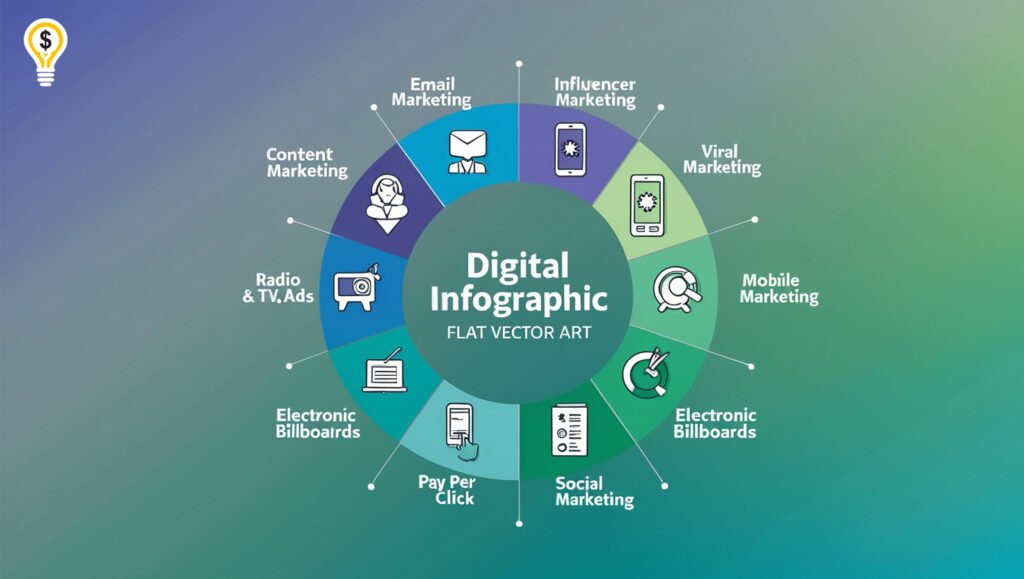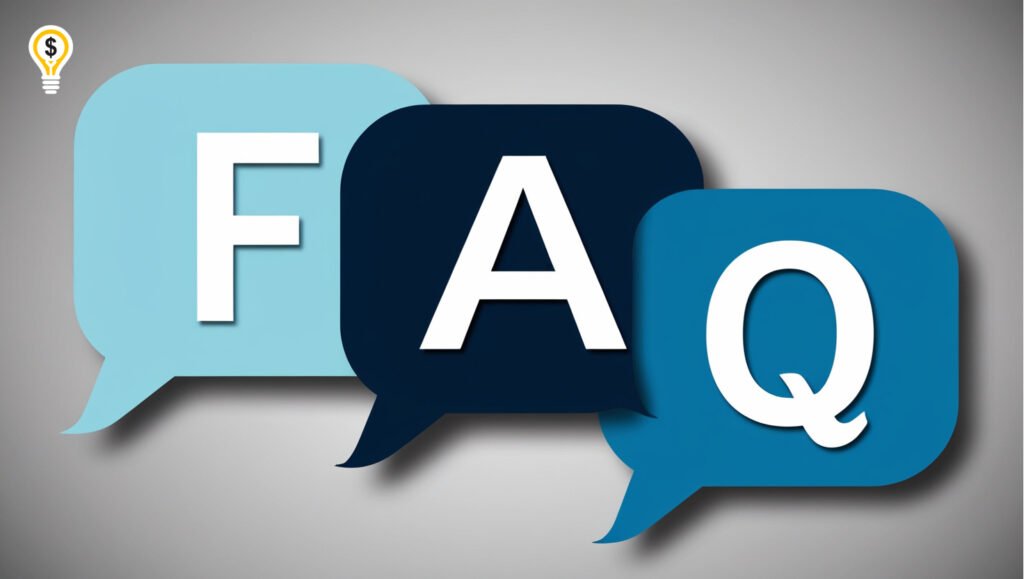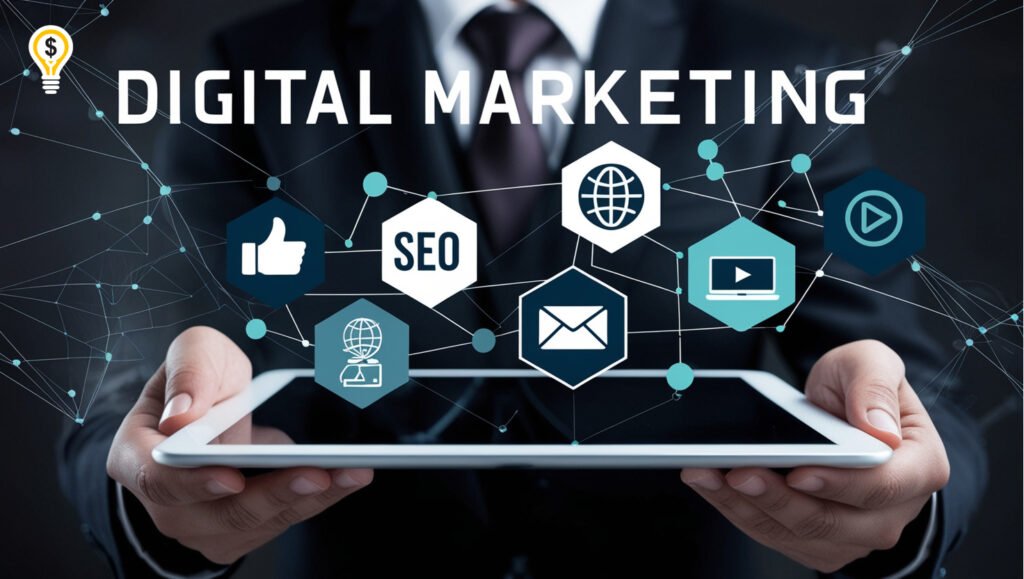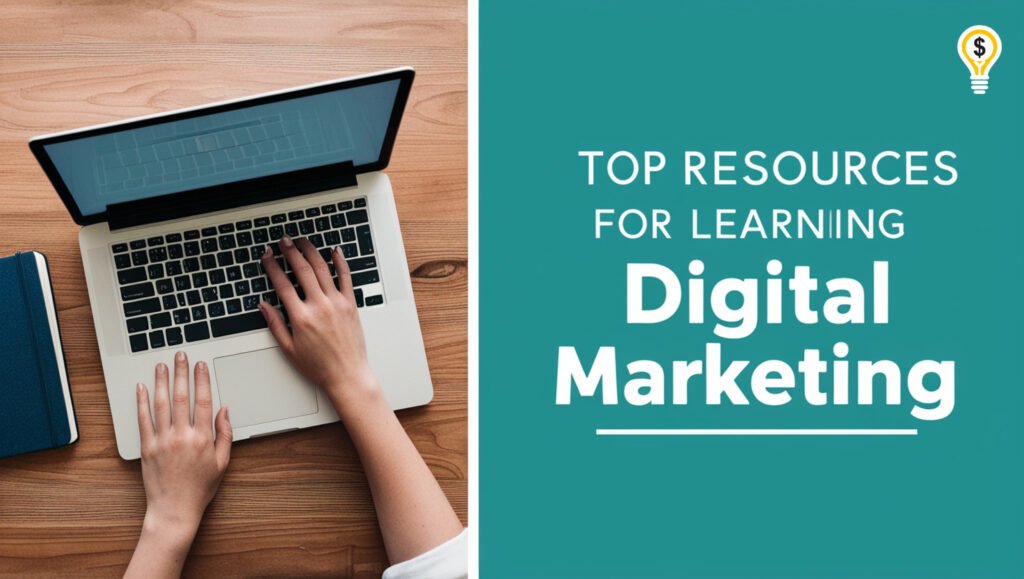
Introduction to Digital Marketing Management
In today’s digital world, businesses need to stand out online. This is where a digital marketing manager comes in. You play a vital role in shaping a brand’s presence across various platforms. Whether it’s social media, email, or websites, your job is to connect with customers.
But what does a digital marketing manager really do? You might be curious about the skills needed, the challenges faced, and how to start this career. In this article, we’ll explore these aspects in detail. By the end, you’ll understand why this role is essential and how you can thrive in it. Let’s dive in!
Key Responsibilities of a Digital Marketing Manager
A digital marketing manager has a diverse set of responsibilities that are crucial for the success of any online marketing strategy. Here are some of the key tasks you will handle:
1. Developing Marketing Strategies
You will create and implement effective marketing strategies to boost brand awareness and engagement. This involves analysing market trends and understanding the target audience.
2. Overseeing Campaigns
You will plan, execute, and monitor various digital marketing campaigns. This includes managing campaigns across channels like social media, email, search engines, and display ads. Your goal is to ensure that each campaign aligns with overall business objectives.
3. Analysing Performance Metrics
Measuring success is essential. You will track and analyse performance metrics using tools like Google Analytics. This helps you understand what works and what needs improvement. You will adjust strategies based on data insights.
4. Managing Budgets
You will be responsible for managing the marketing budget. This includes allocating resources effectively and ensuring that campaigns deliver a good return on investment (ROI). You need to keep an eye on expenses while maximising results.
5. Collaborating with Teams
Collaboration is key in this role. You will work closely with other teams, such as sales, design, and content. Effective communication ensures that everyone is aligned and working toward common goals.
6. Staying Updated on Trends
Digital marketing is always evolving. You must stay updated on the latest trends, tools, and best practices. This might involve attending workshops, webinars, or industry conferences to keep your skills sharp.
7. Creating Engaging Content
Content is at the heart of digital marketing. You will oversee content creation, ensuring it resonates with your audience. This includes blog posts, social media updates, and email newsletters.
8. Managing Social Media Accounts
You will handle the company’s social media profiles. This involves creating posts, engaging with followers, and responding to comments. You will also analyse social media performance to refine strategies.
9. Building Relationships with Customers
Understanding your audience is vital. You will engage with customers to build relationships and gather feedback. This insight helps improve marketing efforts and enhances customer satisfaction.
10. Reporting to Stakeholders
Finally, you will regularly report your findings and progress to management and stakeholders. Clear reports on campaign performance and marketing metrics help justify decisions and drive future strategies.
By taking on these responsibilities, you will play a crucial role in shaping your company’s online presence and driving growth. Each task contributes to a broader strategy that ultimately impacts the brand’s success in the digital marketplace.
Types of Digital Marketing Campaigns

As a digital marketing manager, you’ll oversee a variety of campaigns that utilise different channels and techniques. Understanding these types is essential for crafting effective strategies. Here’s a closer look at the main types of digital marketing campaigns you might manage:
1. Search Engine Optimization (SEO)
SEO focuses on improving a website’s visibility in search engine results. You’ll optimise content, keywords, and website structure to rank higher on search engines like Google. The goal is to drive organic traffic by ensuring that potential customers find your site when searching for relevant topics.
2. Pay-Per-Click Advertising (PPC)
PPC campaigns involve paying for ads that appear in search engine results or on social media. You’ll create targeted ads and manage budgets to ensure a positive return on investment. Analysing click-through rates (CTR) and conversion rates is crucial to refine these campaigns and maximise effectiveness.
3. Social Media Marketing
This type of campaign uses platforms like Facebook, Instagram, Twitter, and LinkedIn to reach audiences. You’ll develop engaging content, run promotions, and interact with followers. Social media marketing aims to build brand awareness, generate leads, and foster community engagement.
4. Email Marketing
Email marketing involves sending targeted messages to a list of subscribers. You’ll create newsletters, promotional offers, and automated email sequences. The key is to craft compelling content that encourages recipients to take action, whether it’s visiting your website or making a purchase.
5. Content Marketing
Content marketing focuses on creating valuable content to attract and engage an audience. This can include blog posts, videos, infographics, and ebooks. You’ll develop a content strategy that aligns with customer needs and interests, ultimately driving traffic and building trust with your audience.
6. Influencer Marketing
In this campaign type, you partner with influencers—individuals with a significant following in your niche—to promote your brand. You’ll identify relevant influencers and collaborate on campaigns that showcase your products or services. This can enhance credibility and reach a broader audience.
7. Affiliate Marketing
Affiliate marketing involves partnering with other businesses or individuals to promote your products. You’ll set up programs where affiliates earn a commission for driving sales or leads. This can be an effective way to expand your reach without significant upfront costs.
8. Retargeting Campaigns
Retargeting campaigns aim to re-engage users who have previously visited your website but did not convert. You’ll create ads that follow these users across the web, reminding them of your products or services. This helps increase brand recall and encourages them to return and complete their purchase.
9. Video Marketing
Video marketing leverages video content to promote your brand and engage customers. You might create tutorials, product demonstrations, or brand storytelling videos. Platforms like YouTube and social media are ideal for sharing this content, making it an effective way to connect with your audience.
10. Mobile Marketing
With more people using smartphones, mobile marketing is crucial. This includes optimising websites for mobile devices, creating apps, and using SMS marketing. Your campaigns need to provide a seamless experience for users on their mobile devices to maximise engagement and conversions.
managing these various types of campaigns, you can tailor your marketing efforts to meet specific goals and target audiences effectively. Each campaign type offers unique opportunities to engage customers and drive business growth, making your role as a digital marketing manager both dynamic and impactful.
Required Skills for Success

To excel as a digital marketing manager, you need a diverse skill set that encompasses both creative and analytical abilities. Here are the essential skills that will help you thrive in this role:
1. Strategic Thinking
You must be able to see the big picture and develop comprehensive marketing strategies. This involves setting clear goals, identifying target audiences, and understanding market trends. Strategic thinking allows you to align your marketing efforts with overall business objectives.
2. Communication Skills
Effective communication is key in digital marketing. You will need to convey ideas clearly to team members, clients, and stakeholders. This includes writing compelling content for campaigns and presenting strategies in a way that engages your audience. Good listening skills are also essential for understanding client needs and feedback.
3. Analytical Skills
In digital marketing, data is king. You should be comfortable analysing performance metrics and interpreting data from various marketing tools. This helps you assess campaign success and make informed decisions. Being able to identify patterns and trends will enable you to optimise future marketing efforts.
4. Creativity
Creativity is vital for developing engaging content and innovative marketing campaigns. You need to think outside the box to create unique strategies that capture attention. Whether it’s designing eye-catching graphics or crafting compelling ad copy, your creative skills will help set your brand apart.
5. Technical Skills
A solid understanding of digital tools and platforms is crucial. You should be familiar with content management systems (CMS), email marketing software, social media platforms, and analytics tools. Additionally, basic knowledge of HTML and SEO practices can be very beneficial.
6. Time Management
As a digital marketing manager, you’ll juggle multiple projects and deadlines. Strong time management skills are essential to prioritise tasks effectively and ensure that campaigns run smoothly. You’ll need to stay organised and focused to meet deadlines without sacrificing quality.
7. Interpersonal Skills
Building relationships with team members, clients, and influencers is a big part of your job. Strong interpersonal skills will help you collaborate effectively and foster a positive work environment. Networking is also key for influencer partnerships and industry connections.
8. Adaptability
The digital marketing landscape is constantly evolving. You need to be adaptable and open to change, whether it’s learning new tools or adjusting strategies based on feedback. Staying current with industry trends and emerging technologies will help you remain competitive.
9. Project Management
Managing campaigns involves coordinating various moving parts. Project management skills help you oversee tasks, set timelines, and ensure everyone is on track. Familiarity with project management tools can streamline this process and enhance team collaboration.
10. Customer-Centric Mindset
Understanding customer needs and behaviours is crucial. You should be able to put yourself in the customer’s shoes and create marketing strategies that resonate with them. This customer-centric approach will enhance engagement and drive conversions.
By developing these skills, you will be well-equipped to handle the diverse challenges of a digital marketing manager. Each skill contributes to your ability to create effective marketing strategies, engage your audience, and achieve business goals. Your continuous growth in these areas will not only benefit your career but also the success of the brands you manage.
Educational Pathways and Certifications

To become a successful digital marketing manager, a solid educational background and relevant certifications are crucial. Here’s a detailed look at the pathways you can take to prepare for this dynamic role:
1. Obtain a Bachelor’s Degree
Most digital marketing managers hold at least a bachelor’s degree. Common fields of study include:
- Marketing: Provides foundational knowledge of marketing principles, consumer behaviour, and brand management.
- Business Administration: Covers broader business concepts, including finance, management, and strategic planning, which are essential for understanding how marketing fits into overall business operations.
- Communications: Focuses on effective communication strategies, which are vital for creating impactful marketing content.
- Information Technology: Offers insights into digital tools and technologies that are integral to digital marketing.
2. Consider Advanced Degrees
While not always required, obtaining a master’s degree can enhance your knowledge and career prospects. Consider pursuing:
- Master of Business Administration (MBA): An MBA with a concentration in marketing or digital marketing can deepen your understanding of advanced marketing strategies and business management.
- Master’s in Marketing: This degree often focuses specifically on modern marketing techniques, including digital and data-driven approaches.
3. Gain Practical Experience
Hands-on experience is invaluable in the field of digital marketing. Seek internships or entry-level positions in marketing agencies, corporate marketing departments, or startups. This exposure will allow you to apply your academic knowledge and develop practical skills. Look for roles such as:
- Marketing Assistant
- Social Media Coordinator
- SEO Specialist
These positions provide opportunities to learn from experienced professionals and build a portfolio of work.
4. Earn Relevant Certifications
Certifications can help you stand out in the job market by demonstrating your expertise in specific areas of digital marketing. Here are some widely recognized certifications to consider:
- Google Analytics Certification: This certification shows that you can effectively analyse web traffic and user behaviour using Google Analytics, a key tool in digital marketing.
- Google Ads Certification: Proving proficiency in creating and managing pay-per-click (PPC) campaigns, this certification is valuable for any digital marketing manager.
- HubSpot Content Marketing Certification: This course covers essential content marketing strategies, helping you create engaging content that drives traffic and conversions.
- Facebook Blueprint Certification: Offers training on using Facebook and Instagram for advertising, essential for social media marketing.
5. Participate in Online Courses and Workshops
Many organisations and platforms offer online courses that cover various aspects of digital marketing. Websites like Coursera, Udemy, and LinkedIn Learning provide affordable options to expand your knowledge. Look for courses on topics such as:
- SEO and SEM
- Email Marketing
- Social Media Strategies
- Data Analytics
6. Stay Updated on Industry Trends
The digital marketing landscape is constantly changing. To remain competitive, regularly read industry blogs, attend webinars, and join professional associations. Organisations like the American Marketing Association (AMA) and the Digital Marketing Association (DMA) provide resources and networking opportunities.
7. Network with Professionals
Building a network of industry contacts can open doors for job opportunities and mentorship. Attend marketing conferences, local meetups, and networking events. Engaging with professionals can provide insights into best practices and emerging trends.
8. Consider Specialized Training Programs
Many organisations offer training programs that focus on specific areas of digital marketing. These programs often provide hands-on experience and practical knowledge. For example, you might consider:
- Digital Marketing Bootcamps: Intensive training that covers a wide range of digital marketing skills.
- Certificate Programs: Offered by universities, these programs can provide focused training on specific aspects of digital marketing.
following these educational pathways and pursuing relevant certifications, you can build a solid foundation for a successful career as a digital marketing manager. Continuous learning and adaptation will keep you at the forefront of this rapidly evolving field, making you a valuable asset to any organisation.
Career Progression and Job Outlook

As a digital marketing manager, understanding your career progression and the job outlook for this field is essential for planning your professional journey. Here’s an overview of what you can expect in terms of growth opportunities and future trends.
1. Entry-Level Positions
Most digital marketing professionals start their careers in entry-level roles. Common positions include:
- Marketing Assistant: Supporting marketing teams with research, content creation, and administrative tasks.
- Social Media Coordinator: Managing social media accounts and engaging with followers to build brand presence.
- SEO Specialist: Focusing on optimising website content to improve search engine rankings.
These roles allow you to gain practical experience and develop foundational skills in digital marketing.
2. Mid-Level Positions
After gaining a few years of experience, you can progress to mid-level positions. These roles typically involve more responsibility and leadership. Examples include:
- Digital Marketing Specialist: Focusing on specific areas, such as email marketing or PPC advertising, to drive campaigns.
- Content Marketing Manager: Overseeing content strategy and production, ensuring alignment with brand goals.
- Social Media Manager: Developing and executing social media strategies while managing a team of coordinators.
Mid-level positions often require a mix of technical skills, creativity, and project management abilities.
3. Senior-Level Positions
With further experience and proven results, you can move into senior-level roles, such as:
- Digital Marketing Director: Leading the overall digital marketing strategy for an organisation and managing a team of marketing professionals.
- Head of Marketing: Overseeing all marketing efforts, including digital, traditional, and public relations strategies.
- Chief Marketing Officer (CMO): A top executive responsible for the company’s overall marketing direction and strategy.
These positions often require strong leadership skills and a deep understanding of market trends and consumer behaviour.
4. Freelancing and Consulting
Another option is to leverage your skills and experience to work as a freelancer or consultant. This path allows for greater flexibility and the opportunity to work with various clients across different industries. You can offer services such as:
- Digital marketing strategy development
- SEO consulting
- Social media management
Freelancing can be a rewarding option, but it requires strong self-discipline and business acumen.
5. Job Outlook and Demand
The job outlook for digital marketing managers remains strong. According to the U.S. Bureau of Labor Statistics (BLS), employment in marketing management is expected to grow significantly over the next decade. Several factors contribute to this positive outlook:
- Increased Digital Spending: As businesses continue to shift their budgets toward digital channels, the demand for skilled professionals will rise.
- Evolving Technology: Advances in technology, such as artificial intelligence and data analytics, require marketers who can effectively leverage these tools to optimise campaigns.
- Growing Importance of Online Presence: As consumers increasingly rely on online platforms for purchasing decisions, companies will prioritise building their digital marketing efforts.
6. Salary Expectations
Salaries for digital marketing managers can vary based on experience, location, and industry. Here are some general figures:
- Entry-Level: Digital marketing coordinators or assistants typically earn between $40,000 and $60,000 per year.
- Mid-Level: Specialists and managers can expect salaries ranging from $60,000 to $90,000 annually.
- Senior-Level: Directors and CMOs can earn significantly more, with salaries often exceeding $100,000 and potentially reaching $200,000 or more, especially in large companies or competitive industries.
7. Continuing Education and Professional Development
To remain competitive in the job market, ongoing education and skill development are essential. Participate in workshops, online courses, and industry conferences to stay current with trends and advancements in digital marketing. Continuous learning can help you advance your career and adapt to changes in the field.
understanding the career progression and job outlook in digital marketing, you can make informed decisions about your professional path. The demand for skilled digital marketing managers is strong, offering numerous opportunities for growth and advancement in this exciting and evolving field.
Work Environment for Digital Marketing Managers

The work environment for digital marketing managers can vary significantly based on the industry, company size, and specific job role. Understanding these factors can help you navigate your career effectively. Here’s a detailed look at what you can expect in this profession:
1. Office Settings
Most digital marketing managers work in traditional office environments. You may find yourself in:
- Corporate Offices: Larger companies often have dedicated marketing teams. Here, you’ll collaborate with other departments, such as sales, product development, and customer service.
- Marketing Agencies: Working in an agency setting can offer a dynamic and fast-paced environment. You’ll handle multiple client accounts and be involved in diverse marketing campaigns.
- Remote Work: Many companies now offer remote or hybrid work options. This flexibility can enhance work-life balance but requires strong self-management skills.
2. Team Collaboration
Digital marketing is inherently collaborative. You’ll often work with various teams, including:
- Creative Teams: Designers, writers, and content creators collaborate to produce engaging materials. Effective communication is essential to align creative visions with marketing goals.
- Analytics Teams: Data analysts help interpret campaign performance and consumer behaviour. Partnering with them enables you to make data-driven decisions.
- Sales Teams: Close collaboration with sales professionals ensures that marketing efforts align with sales strategies, leading to better conversion rates.
3. Tools and Technology
Digital marketing managers use a wide range of tools and technologies to execute their strategies effectively. Some commonly used tools include:
- Content Management Systems (CMS): Platforms like WordPress or HubSpot facilitate website management and content publishing.
- Analytics Tools: Google Analytics, SEMrush, and similar tools help track website traffic, user behaviour, and campaign performance.
- Email Marketing Software: Tools like Mailchimp or Constant Contact assist in creating and managing email campaigns.
- Social Media Management Platforms: Hootsuite or Buffer enable you to schedule posts, track engagement, and analyse social media performance.
Staying updated with the latest tools is crucial for effective campaign management.
4. Fast-Paced Environment
The digital marketing landscape is rapidly evolving, which means you’ll often work in a fast-paced environment. Key characteristics include:
- Deadline-Driven Projects: Many campaigns operate on tight timelines. You’ll need to manage multiple projects simultaneously while ensuring quality and effectiveness.
- Adaptability to Change: Trends and technologies can shift quickly. Being adaptable and open to new ideas is essential for staying relevant and competitive.
5. Creative Atmosphere
Creativity is at the heart of digital marketing. You’ll be encouraged to brainstorm and think innovatively. Whether developing a new campaign concept or creating engaging content, your creative input will be highly valued.
6. Client Interaction
If you work in an agency or a consultancy, regular client interaction will be part of your role. This can involve:
- Presenting Campaign Ideas: You may need to pitch marketing strategies to clients and explain how these align with their business goals.
- Gathering Feedback: Effective communication with clients is crucial for understanding their needs and incorporating their feedback into your strategies.
7. Continuous Learning Environment
The ever-evolving nature of digital marketing requires a commitment to continuous learning. You’ll likely participate in:
- Workshops and Training: Many companies invest in professional development, offering workshops on the latest tools and strategies.
- Industry Conferences: Attending marketing conferences can provide networking opportunities and insights into emerging trends.
8. Work-Life Balance
The balance between work and personal life can vary based on your workplace. Companies that prioritise employee well-being often offer flexible hours, remote work options, and a supportive culture. However, the demands of tight deadlines and project-based work can sometimes lead to increased pressure.
Overall, the work environment for digital marketing managers is dynamic, collaborative, and ever-evolving. Embracing creativity, staying adaptable, and continuously learning will help you succeed in this exciting field. Whether working in an office, remotely, or in a fast-paced agency, your role will be crucial in shaping a brand’s online presence and driving marketing success.
Example Job Description for Digital Marketing Managers

A well-crafted job description is essential for attracting the right candidates for the role of a digital marketing manager. Here’s a detailed example of what such a job description might include, covering key responsibilities, requirements, and skills.
Job Title: Digital Marketing Manager
Location: [Insert Location]
Job Type: [Full-Time/Part-Time/Remote]
Department: Marketing
Job Summary
We are seeking a creative and data-driven Digital Marketing Manager to lead our online marketing efforts. In this role, you will develop and implement effective digital marketing strategies to drive traffic, engagement, and conversions. You will oversee all aspects of digital marketing campaigns, including SEO, PPC, social media, content marketing, and email marketing. If you are passionate about digital marketing and ready to make an impact, we want to hear from you!
Key Responsibilities
- Strategy Development: Create and execute comprehensive digital marketing strategies that align with business goals and drive brand awareness.
- SEO Management: Optimise website content for search engines to improve organic search rankings and increase website traffic.
- PPC Campaigns: Plan, execute, and manage pay-per-click advertising campaigns across platforms such as Google Ads and social media.
- Social Media Oversight: Develop and manage social media strategies to enhance brand presence and engagement across multiple platforms.
- Content Creation: Collaborate with content creators to produce high-quality, engaging content that resonates with our target audience.
- Email Marketing: Design and implement effective email marketing campaigns to nurture leads and retain customers.
- Analytics and Reporting: Monitor, analyse, and report on campaign performance using tools like Google Analytics. Adjust strategies based on data insights to maximise ROI.
- Team Leadership: Manage and mentor a team of marketing professionals, fostering a collaborative and innovative work environment.
- Budget Management: Oversee the digital marketing budget, ensuring effective allocation of resources for maximum impact.
- Market Research: Conduct market research to identify trends, competitor activities, and customer needs to inform marketing strategies.
Required Qualifications
- Education: Bachelor’s degree in Marketing, Business Administration, or a related field. A master’s degree is a plus.
- Experience: Minimum of 3-5 years of experience in digital marketing or a related field, with a proven track record of managing successful campaigns.
- Technical Skills: Proficiency in digital marketing tools (e.g., Google Analytics, SEMrush, HubSpot) and content management systems (CMS).
- SEO and PPC Expertise: Strong understanding of SEO principles and experience managing PPC campaigns.
Key Skills
- Analytical Skills: Ability to analyse data and metrics to inform marketing strategies and decision-making.
- Creativity: Strong creative thinking skills for developing engaging marketing content and innovative campaign strategies.
- Communication Skills: Excellent verbal and written communication skills, with the ability to present ideas clearly and persuasively.
- Project Management: Strong organisational skills with the ability to manage multiple projects and meet deadlines.
- Interpersonal Skills: Ability to work collaboratively within a team and build relationships with clients and stakeholders.
Preferred Qualifications
- Certifications: Relevant certifications in digital marketing (e.g., Google Ads, Google Analytics, HubSpot) are preferred.
- Familiarity with Social Media Platforms: Knowledge of current social media trends and best practices for engagement.
Benefits
- Competitive salary and performance bonuses.
- Flexible working hours and remote work options.
- Professional development opportunities.
- Health, dental, and vision insurance.
- Paid time off and holidays.
Application Process
Interested candidates should submit their resume, cover letter, and a portfolio of relevant work. We look forward to finding a passionate digital marketing manager to join our team!
.
Related Careers in Digital Marketing

Digital marketing is a vast field with numerous career paths. If you’re considering a role in this area or looking to expand your career options, here’s a detailed overview of related careers that align with the skills and knowledge gained as a digital marketing manager.
1. Social Media Manager
Social media managers focus on creating and implementing strategies across various social media platforms. They engage with audiences, build brand presence, and analyse social media metrics to drive engagement and growth. Key responsibilities include:
- Developing social media content calendars.
- Monitoring social media trends and audience preferences.
- Collaborating with content creators to produce engaging posts.
2. SEO Specialist
SEO specialists are responsible for optimising websites to improve their visibility in search engine results. They conduct keyword research, optimise on-page elements, and analyse website performance. Their work is critical for driving organic traffic to a company’s website. Essential tasks include:
- Implementing SEO strategies based on keyword analysis.
- Monitoring website rankings and making adjustments as needed.
- Conducting audits to identify areas for improvement.
3. Content Marketing Manager
Content marketing managers oversee the development and execution of content strategies. They create valuable and relevant content to attract and engage target audiences. Responsibilities typically include:
- Planning and producing blog posts, videos, and infographics.
- Analysing content performance metrics to refine strategies.
- Collaborating with SEO specialists to optimise content for search engines.
4. Email Marketing Specialist
Email marketing specialists focus on creating and managing email campaigns to nurture leads and retain customers. They develop targeted email lists, craft compelling content, and analyse campaign performance. Key duties include:
- Designing and segmenting email campaigns based on user behaviour.
- Monitoring open rates, click-through rates, and conversions.
- Conducting A/B testing to improve campaign effectiveness.
5. Digital Advertising Specialist
Digital advertising specialists manage paid advertising campaigns across various platforms, including Google Ads and social media. They analyse performance data to optimise ad spend and achieve the best results. Responsibilities include:
- Developing targeted ad campaigns based on market research.
- Monitoring and adjusting ad performance to maximise ROI.
- Collaborating with graphic designers to create compelling ad visuals.
6. PPC Specialist
Pay-per-click (PPC) specialists focus on managing paid search campaigns. They optimise ads to drive traffic and conversions while minimising costs. Their tasks involve:
- Conducting keyword research and analysis.
- Monitoring bid strategies and adjusting them for optimal performance.
- Reporting on campaign performance and suggesting improvements.
7. Digital Marketing Analyst
Digital marketing analysts focus on data analysis to measure the effectiveness of marketing strategies. They interpret data to provide actionable insights and recommendations. Key responsibilities include:
- Analysing website traffic, conversion rates, and campaign performance.
- Creating detailed reports and dashboards for stakeholders.
- Identifying trends and areas for improvement based on data.
8. Brand Manager
Brand managers oversee the overall image and reputation of a brand. They develop brand strategies and ensure that all marketing efforts align with the brand’s goals. Key responsibilities include:
- Conducting market research to understand consumer perceptions.
- Collaborating with marketing teams to create cohesive branding strategies.
- Monitoring brand performance and making adjustments as needed.
9. Marketing Coordinator
Marketing coordinators support marketing teams in executing campaigns and managing projects. They assist with various tasks, from administrative duties to content creation. Responsibilities may include:
- Coordinating marketing events and promotions.
- Assisting in the development of marketing materials.
- Tracking project timelines and budgets.
The Role of the Digital Marketing Manager

In today’s fast-paced digital landscape, the role of a digital marketing manager is more crucial than ever. As businesses increasingly turn to online platforms to reach their audiences, skilled professionals are needed to guide their digital marketing strategies. Here’s a summary of the key points about this dynamic role and its importance.
1. Strategic Leadership
Digital marketing managers serve as the strategic leaders of online marketing efforts. They develop comprehensive marketing strategies that align with business goals and target audience needs. By combining analytical insights with creative thinking, they ensure that campaigns are not only effective but also resonate with potential customers.
2. Versatile Skill Set
A successful digital marketing manager possesses a diverse skill set. This includes proficiency in various digital marketing channels, such as SEO, content marketing, social media, email marketing, and paid advertising. They must also be adept at analysing data to inform decisions, showcasing a balance between creativity and analytical thinking.
3. Collaboration and Communication
Collaboration is at the heart of a digital marketing manager’s role. They work closely with creative teams, data analysts, sales personnel, and external partners. Strong communication skills are essential for articulating ideas, presenting strategies, and ensuring that all stakeholders are aligned on campaign objectives.
4. Adaptability to Change
The digital marketing landscape is constantly evolving, with new trends, technologies, and consumer behaviours emerging regularly. Digital marketing managers must be adaptable, staying current with industry changes and willing to pivot strategies as needed. This adaptability is crucial for maintaining a competitive edge in a crowded market.
5. Impact on Business Success
The effectiveness of digital marketing strategies directly impacts a company’s success. By driving traffic, increasing brand awareness, and enhancing customer engagement, digital marketing managers play a vital role in generating leads and boosting sales. Their efforts contribute significantly to a company’s overall growth and profitability.
6. Career Opportunities
The demand for digital marketing managers is robust, with opportunities for advancement into senior-level roles such as marketing director or chief marketing officer. As the industry continues to grow, professionals in this field can expect to find numerous avenues for career development, making it an attractive option for those looking to build a rewarding career.
7. Continuous Learning and Development
To thrive in this ever-changing field, digital marketing managers must commit to continuous learning. This includes staying updated on the latest tools, techniques, and best practices. Participating in workshops, attending conferences, and pursuing certifications can enhance their skills and keep them competitive.
Final Thoughts
The role of a digital marketing manager is both challenging and rewarding. It requires a unique blend of strategic thinking, creativity, and analytical skills. As businesses increasingly rely on digital channels to connect with consumers, the importance of this role will only continue to grow. Whether you’re considering a career in digital marketing or looking to advance within the field, understanding the significance of this position can help you navigate your professional journey with confidence.
Frequently Asked Questions (FAQs) About Digital Marketing Managers

As you explore the role of a digital marketing manager, you may have questions about the responsibilities, required skills, and career prospects. Here are some common questions and detailed answers to help clarify this exciting profession.
1. What does a digital marketing manager do?
A digital marketing manager develops and executes online marketing strategies to promote a brand’s products or services. Their responsibilities include overseeing SEO, managing PPC campaigns, creating content, coordinating social media efforts, and analysing data to optimise campaigns. They aim to increase brand awareness, drive website traffic, and generate leads or sales.
2. What skills are essential for a digital marketing manager?
Key skills for a digital marketing manager include:
- Strategic Thinking: Ability to develop and implement comprehensive marketing strategies.
- Analytical Skills: Proficiency in analysing data to inform decisions and improve campaigns.
- Communication Skills: Strong verbal and written communication for collaborating with teams and presenting ideas.
- Creativity: Innovative thinking for developing engaging marketing content.
- Technical Skills: Familiarity with digital marketing tools and platforms, including CMS, analytics software, and social media management tools.
3. What qualifications do I need to become a digital marketing manager?
Typically, a bachelor’s degree in marketing, business administration, or a related field is required. Many employers prefer candidates with additional certifications in digital marketing, such as Google Ads, Google Analytics, or HubSpot. Relevant work experience in digital marketing roles is also crucial for advancement to a managerial position.
4. What is the typical salary for a digital marketing manager?
Salaries for digital marketing managers can vary based on location, industry, and level of experience. On average, digital marketing managers can expect to earn between $70,000 and $120,000 annually. Those with significant experience or in managerial roles at large companies may earn even higher salaries.
5. What is the job outlook for digital marketing managers?
The job outlook for digital marketing managers is strong. As more businesses shift their focus to online marketing, the demand for skilled professionals in this field continues to grow. According to the U.S. Bureau of Labor Statistics, employment in marketing and advertising roles is projected to grow by 10% from 2022 to 2032, faster than the average for all occupations.
6. Can I work remotely as a digital marketing manager?
Yes, many digital marketing managers work remotely or in hybrid settings. The nature of digital marketing allows for flexibility, as most tasks can be performed online. Remote work can enhance work-life balance, but it requires strong self-management and communication skills to stay connected with teams.
7. What tools do digital marketing managers use?
Digital marketing managers utilise a variety of tools to streamline their efforts, including:
- Analytics Tools: Google Analytics, SEMrush, and Adobe Analytics for tracking and analysing campaign performance.
- SEO Tools: Moz and Ahrefs for optimising content and monitoring search rankings.
- Email Marketing Platforms: Mailchimp and Constant Contact for managing email campaigns.
- Social Media Management Tools: Hootsuite and Buffer for scheduling posts and analysing social media engagement.
8. What are some common challenges faced by digital marketing managers?
Digital marketing managers face several challenges, including:
- Staying Current: The digital marketing landscape is constantly changing, requiring ongoing education and adaptation
Tips for Being a Good Digital Marketing Manager

Becoming an effective digital marketing manager requires a combination of skills, strategic thinking, and practical experience. Here are some actionable tips to help you excel in this role and drive successful marketing campaigns.
1. Stay Informed About Industry Trends
The digital marketing landscape is ever-evolving. To remain competitive, regularly read industry blogs, follow influential marketers on social media, and participate in webinars or conferences. This knowledge will help you adapt strategies and leverage new tools or technologies.
2. Embrace Data-Driven Decision Making
Use data analytics to guide your marketing strategies. Monitor key performance indicators (KPIs) such as website traffic, conversion rates, and return on investment (ROI). Tools like Google Analytics can provide valuable insights, allowing you to adjust campaigns based on real-time data.
3. Develop a Comprehensive Marketing Strategy
A successful digital marketing strategy should encompass various channels, including SEO, content marketing, social media, and email campaigns. Clearly define your goals, target audience, and key messages. Ensure that all channels work together to create a cohesive brand experience.
4. Foster Collaboration and Teamwork
Digital marketing often involves cross-functional teams. Encourage open communication among team members, and leverage their unique skills and insights. Regular team meetings can help ensure everyone is aligned and working towards common objectives.
5. Focus on Customer Experience
Understanding your audience is crucial. Conduct market research to gain insights into customer needs and preferences. Tailor your marketing efforts to enhance customer experience, ensuring that messaging is relevant and resonates with your target audience.
6. Master Content Creation and Curation
High-quality content is essential for engaging your audience. Invest time in creating valuable, informative, and entertaining content. Additionally, curate content from reputable sources to provide added value to your audience while positioning your brand as a thought leader.
7. Be Flexible and Adaptable
Digital marketing can be unpredictable. Be prepared to pivot your strategies based on market changes, emerging trends, or unexpected challenges. Flexibility allows you to respond quickly and effectively to new opportunities or setbacks.
8. Invest in Continuous Learning
Marketing practices and technologies are constantly changing. Pursue ongoing education through online courses, certifications, or workshops to enhance your skills. Stay curious and open to learning, as this will help you stay ahead in your field.
9. Utilise Marketing Automation Tools
Leverage marketing automation tools to streamline processes and improve efficiency. Tools like HubSpot, Mailchimp, and Hootsuite can help you manage campaigns, schedule posts, and analyse performance, freeing up time for strategic planning and creativity.
10. Set Measurable Goals
Establish clear, measurable objectives for your marketing campaigns. Use the SMART criteria (Specific, Measurable, Achievable, Relevant, Time-bound) to set goals that guide your efforts and provide a benchmark for success. Regularly review and adjust these goals as necessary.
11. Build Strong Relationships
Networking is vital in digital marketing. Build relationships with other marketing professionals, influencers, and industry experts. These connections can lead to collaboration opportunities, partnerships, and valuable insights that enhance your strategies.
12. Maintain a Positive Online Presence
As a digital marketing manager, your online presence reflects your brand. Maintain an active and professional profile on platforms like LinkedIn. Share insights, participate in discussions, and showcase your expertise to build credibility and attract potential clients or employers.
Being a successful digital marketing manager

Being a successful digital marketing manager involves a blend of strategy, creativity, and analytical thinking. By following these tips, you can enhance your effectiveness, lead successful campaigns, and contribute to your organisation’s growth. Stay committed to learning, adapt to changes, and always keep your audience at the forefront of your efforts.
1. Responsibilities
Digital marketing managers are responsible for developing, executing, and optimising comprehensive marketing strategies across various digital channels. From managing SEO and PPC campaigns to overseeing social media and content marketing, their multifaceted role requires a deep understanding of consumer behaviour and market trends. They are tasked with creating engaging content, analysing performance metrics, and making data-driven decisions to achieve business goals.
2. Skills and Qualifications
To succeed, digital marketing managers must possess a diverse skill set that includes strategic thinking, creativity, and strong analytical abilities. A solid educational background, often including a bachelor’s degree in marketing or a related field, along with relevant certifications, can set candidates apart. Experience in digital marketing roles is crucial for understanding the nuances of online engagement and conversion.
3. Career Opportunities
The demand for digital marketing managers continues to grow, offering numerous career opportunities and pathways for advancement. With the rise of digital platforms, professionals in this field can expect a robust job market, with potential roles extending into senior management positions such as marketing director or chief marketing officer. Continuous learning and adaptability will further enhance career prospects in this dynamic environment.
4. Importance of Adaptability
As technology and consumer preferences evolve, so too must the strategies employed by digital marketing managers. Staying current with industry trends, embracing new tools, and adapting to changes in market dynamics are essential for maintaining a competitive edge. Successful managers not only react to changes but proactively seek out opportunities for innovation and improvement.
5. Focus on Results
Ultimately, the effectiveness of a digital marketing manager is measured by the results they deliver. By focusing on measurable outcomes, such as increased website traffic, higher conversion rates, and improved return on investment, digital marketing managers can demonstrate their value to organisations. Setting clear goals and continually assessing performance against these benchmarks is key to driving success.
6. Final Thoughts
A career as a digital marketing manager is both challenging and rewarding. It offers the opportunity to shape brand narratives, connect with audiences, and drive business success through innovative strategies. For those passionate about marketing and eager to navigate the digital landscape, this role represents a compelling and impactful career choice.
Resources for Further Learning

As the digital marketing landscape continues to evolve, staying informed and educated is essential for success in this field. Whether you are a current digital marketing manager or an aspiring professional, leveraging various resources can enhance your skills and knowledge. Here’s a comprehensive list of valuable resources to consider.
1. Online Courses and Certifications
- Coursera: Offers courses on digital marketing fundamentals, SEO, and data analytics from universities and industry leaders.
- Udemy: Features a wide range of courses on specific topics, such as social media marketing, Google Ads, and content marketing.
- HubSpot Academy: Provides free certifications in inbound marketing, email marketing, and content marketing, along with various resources and guides.
- Google Digital Garage: Offers free courses on digital marketing fundamentals, including analytics and SEO, directly from Google.
2. Books
- “Digital Marketing for Dummies” by Ryan Deiss and Russ Henneberry: A comprehensive guide that covers the basics of digital marketing.
- “Contagious: How to Build Word of Mouth in the Digital Age” by Jonah Berger: Explores why some ideas and products go viral and how to leverage that for marketing.
- “Building a StoryBrand” by Donald Miller: Focuses on the importance of storytelling in marketing and how to clarify your message.
- “Made to Stick” by Chip Heath and Dan Heath: Discusses how to create memorable and impactful messages.
3. Industry Blogs and Websites
- Moz: Offers valuable insights and articles on SEO, including guides and research on best practices.
- HubSpot Blog: Covers a range of topics, including inbound marketing, sales, and customer service strategies.
- Neil Patel: Provides actionable tips and strategies on digital marketing, SEO, and content marketing.
- Search Engine Journal: Offers the latest news, trends, and insights in digital marketing and SEO.
4. Podcasts
- Marketing School: Hosted by Neil Patel and Eric Siu, this podcast provides daily tips and insights on digital marketing strategies.
- Online Marketing Made Easy: Hosted by Amy Porterfield, it covers various topics related to online marketing and entrepreneurship.
- Social Media Marketing Podcast: Offers insights from industry experts on social media strategies and tactics.
5. Webinars and Virtual Events
- Content Marketing World: Hosts virtual events focusing on content marketing strategies and best practices.
- Digital Marketing Summit: A series of online conferences featuring industry leaders discussing the latest trends and techniques in digital marketing.
6. Networking Opportunities
- LinkedIn Groups: Join relevant groups focused on digital marketing to connect with peers, share insights, and ask questions.
- Meetup: Look for local digital marketing meetups to network with professionals in your area and share experiences.
7. Professional Organizations
- American Marketing Association (AMA): Offers resources, networking opportunities, and certifications for marketing professionals.
- Digital Marketing Association: Provides insights, best practices, and networking opportunities for digital marketing professionals.
8. YouTube Channels
- Google Webmasters: Offers tutorials and insights directly from Google on SEO and website performance.
- Backlinko: Provides valuable video content focused on SEO strategies and content marketing tips.
Utilising these resources can significantly enhance your knowledge and skills in digital marketing. Whether you prefer online courses, reading, listening to podcasts, or engaging with industry professionals, there are abundant opportunities for learning.
Continuous education is essential to keep up with the rapidly changing digital landscape and to ensure that you remain effective in your role as a digital marketing manager. Embrace these resources to stay informed, grow your expertise, and excel in your career.
Additional Resources for Digital Marketing Managers

For those looking to deepen their understanding of digital marketing or stay updated with the latest trends, a variety of additional resources can provide valuable insights and practical knowledge. Here’s a curated list of tools, platforms, and communities that can support your growth and effectiveness as a digital marketing manager.
1. Analytics and SEO Tools
- Google Analytics: Essential for tracking and analysing website traffic, user behaviour, and campaign performance. It offers insights that can inform strategic decisions.
- SEMrush: A comprehensive tool for SEO, PPC, and content marketing that provides keyword research, competitor analysis, and site audits.
- Ahrefs: Known for its powerful backlink analysis and keyword research features, Ahrefs is invaluable for improving SEO strategies.
- Moz: Offers tools for keyword research, site audits, and tracking SERP rankings, along with educational resources on SEO best practices.
2. Content Creation and Management
- Canva: A user-friendly design tool that allows you to create engaging graphics for social media, blogs, and marketing materials without needing extensive design skills.
- BuzzSumo: Helps identify trending topics and content performance, making it easier to craft shareable content that resonates with your audience.
- Grammarly: An essential writing tool that checks grammar, punctuation, and style, ensuring your content is polished and professional.
3. Email Marketing Platforms
- Mailchimp: A popular email marketing service that offers automation features, templates, and analytics to track campaign performance.
- Constant Contact: Provides tools for email marketing, including customizable templates and audience segmentation, making it easy to manage campaigns.
- ActiveCampaign: Known for its advanced automation capabilities, it combines email marketing with CRM features to enhance customer relationships.
4. Social Media Management Tools
- Hootsuite: Allows you to manage multiple social media accounts in one place, schedule posts, and analyse performance metrics.
- Buffer: A simple tool for scheduling social media posts and tracking engagement, helping you maintain a consistent online presence.
- Sprout Social: Offers comprehensive social media management features, including analytics, engagement tracking, and team collaboration tools.
5. Community and Networking Platforms
- GrowthHackers: A community of marketers and entrepreneurs focused on sharing growth strategies, experiments, and insights.
- Reddit: Subreddits like r/digital_marketing and r/SEO provide platforms for discussion, sharing resources, and asking for advice from peers.
- Slack Communities: Joining Slack groups dedicated to digital marketing can connect you with professionals, allowing for real-time discussions and resource sharing.
6. Webinars and Online Conferences
- Social Media Examiner’s Social Media Marketing World: An annual event that brings together top marketers for sessions on social media strategies.
- Content Marketing Institute Webinars: Offers regular webinars on content marketing trends, strategies, and best practices.
- HubSpot Webinars: Regularly hosts webinars on various digital marketing topics, providing insights from industry leaders.
7. Research and Case Studies
- Statista: A statistical database that provides insights into digital marketing trends, consumer behaviour, and market research.
- MarketingProfs: Offers articles, research, and case studies that focus on marketing tactics, trends, and strategies.
- eMarketer: A research firm providing data, insights, and analysis on digital marketing trends and consumer behaviour.
8. Podcasts for Continuous Learning
- Call to Action: A podcast by Unbounce that features discussions on conversion optimization and digital marketing strategies.
- The Smart Passive Income Podcast: Hosted by Pat Flynn, this podcast covers various aspects of online business and marketing.
- Marketing Over Coffee: A weekly discussion that covers both classic and new marketing topics in a brief and engaging format
Conclusion
In the dynamic world of digital marketing, the role of a digital marketing manager is crucial for driving business success and fostering meaningful connections with audiences. By understanding their responsibilities, acquiring the necessary skills, and utilising the right resources, professionals can excel in this field.
Continuous learning and adaptability are key to staying relevant in an ever-evolving landscape. As you embrace the challenges and opportunities that come with this role, remember that your impact can shape brand narratives and drive growth.
By leveraging the insights and tools discussed throughout this article, you can enhance your effectiveness as a digital marketing manager and contribute significantly to your organisation’s success. The journey is ongoing, and with dedication and curiosity, you can navigate the complexities of digital marketing and achieve remarkable results.








